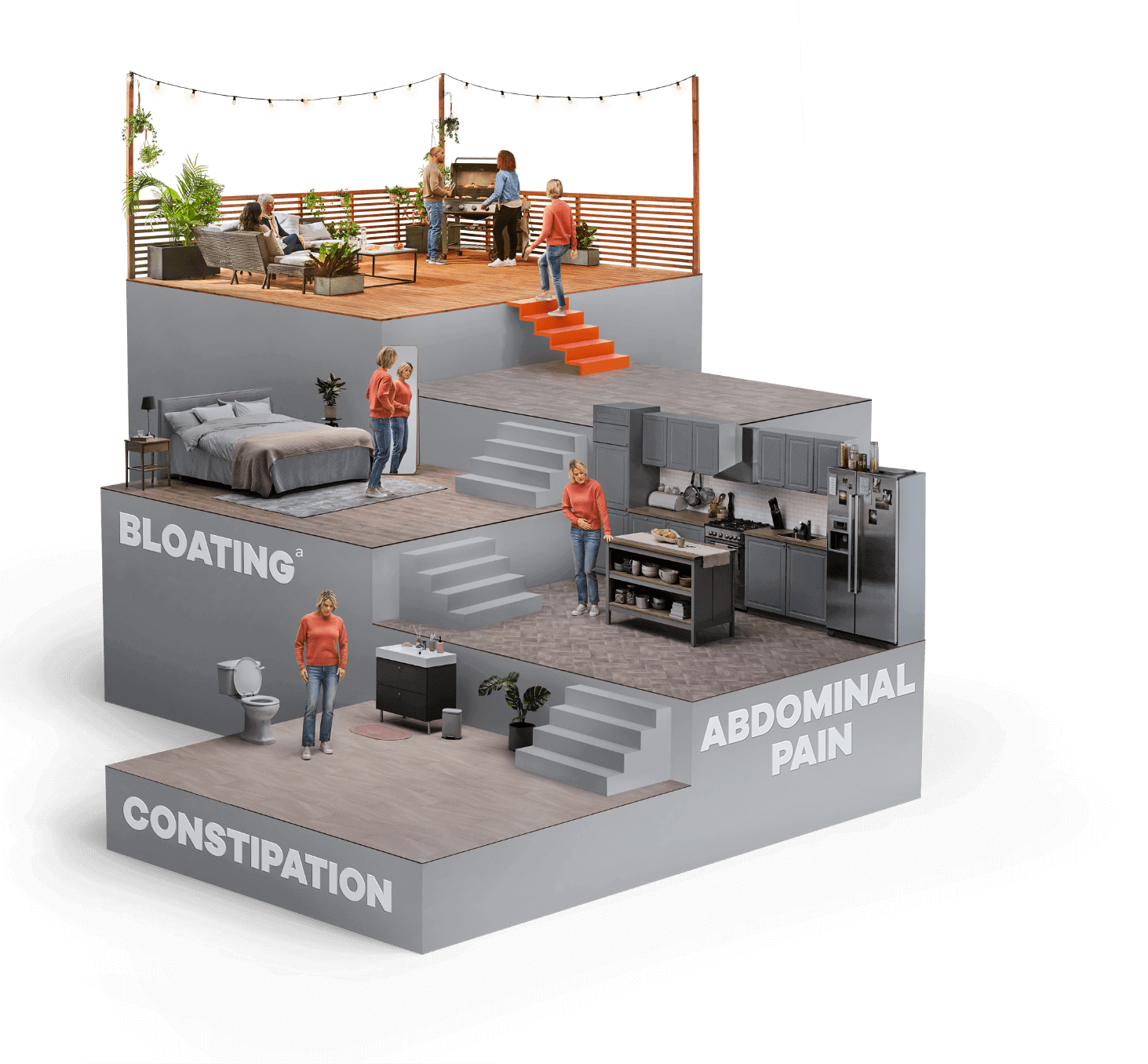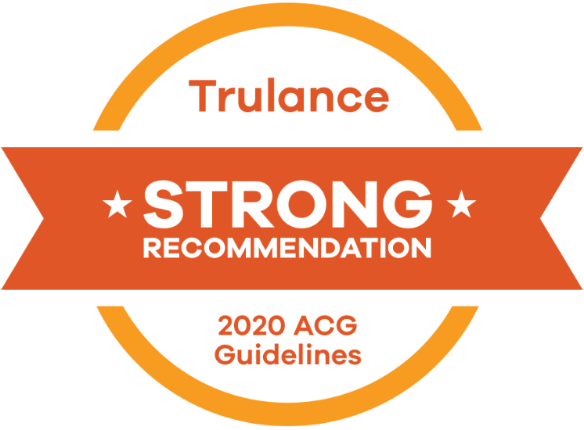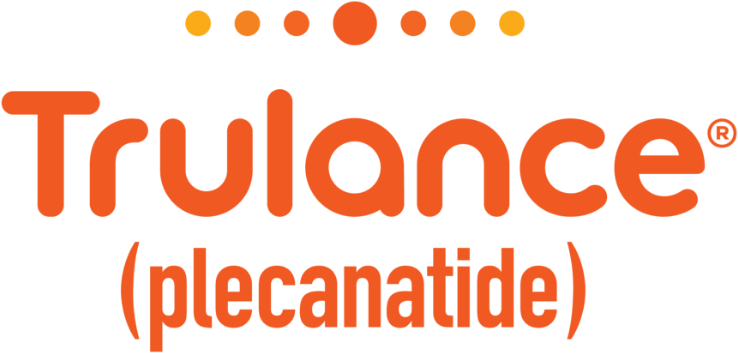
For adults with irritable bowel syndrome with constipation (IBS-C) or chronic idiopathic constipation (CIC)2

aMean change from baseline in abdominal symptoms including bloating were measured as a secondary endpoint over 12 weeks in phase III registrational trials.
bIQVIA SMART NPA Monthly 09/2022.


In clinical trials of adult patients with IBS-C and CIC
There was a significantly greater percentage of efficacy responders in the Trulance group vs the placebo group1-4
In Study 3 of IBS-C patients, the percentage of overall efficacy responders (abdominal pain and stool frequency) was 30% for Trulance vs 18% for placebo (P<0.001).2,3,c In Study 1 of CIC patients, the percentage of overall efficacy responders (durable complete spontaneous bowel movement) was 21% for Trulance vs 10% for placebo (P<0.005).2
MORE
regular, well-formed bowel movements2-5
LESS
IBS-C–related
abdominal pain
LOW
incidence of
diarrhea (≤5%)2
cIn Study 3 of IBS-C patients, a responder was defined as a patient who met both the abdominal pain intensity and stool frequency responder criteria in the same week for at least 6 of the 12 treatment weeks, which were defined as an abdominal pain intensity responder (a patient who experienced a decrease in the weekly average of worst abdominal pain in the past 24 hours score [measured daily] of at least 30% compared to weekly baseline average) and stool frequency responder (a patient who experienced an increase of at least 1 complete spontaneous bowel movement per week from baseline).2 In Study 1 of CIC patients, a responder was defined as a patient who had at least 3 complete spontaneous bowel movements in a given week and an increase of at least 1 complete spontaneous bowel movement from baseline in the same week for at least 9 weeks out of the 12-week treatment period and at least 3 of the last 4 weeks of the study.2
Strong recommendation
from the ACG Clinical Guidelines6


The 2020 American College of Gastroenterology (ACG) Clinical Guideline gave Trulance, as a GC-C agonist, a strong recommendation with a high quality of evidence for the treatment of global IBS-C symptoms6:
- Effective for relieving overall and individual symptoms of IBS-C
- Responses develop quickly and are maintained over time
- Diarrhea is the most common adverse event experienced, but it is well tolerated, and discontinuation rates due to diarrhea are low
GC-C, guanylate cyclase-C.
Strength of recommendation: Strong=Most patients should receive the recommended course of action. Quality of evidence: High=The estimate of effect is unlikely to change with new data.6
dPatient is not eligible if he/she participates in, seeks reimbursement or submits a claim for reimbursement to any federal or state healthcare program with prescription drug coverage, such as Medicaid, Medicare, Medigap, VA, DOD, TRICARE, or any similar federal or state healthcare program (each a Government Program), or where prohibited by law. Patient must be enrolled in, and must seek reimbursement from or submit a claim for reimbursement to, a commercial insurance plan. Offer excludes full-cash–paying patients. Maximum benefits and other restrictions apply. Visit Trulance.com/savings for full eligibility criteria, terms, and conditions.




